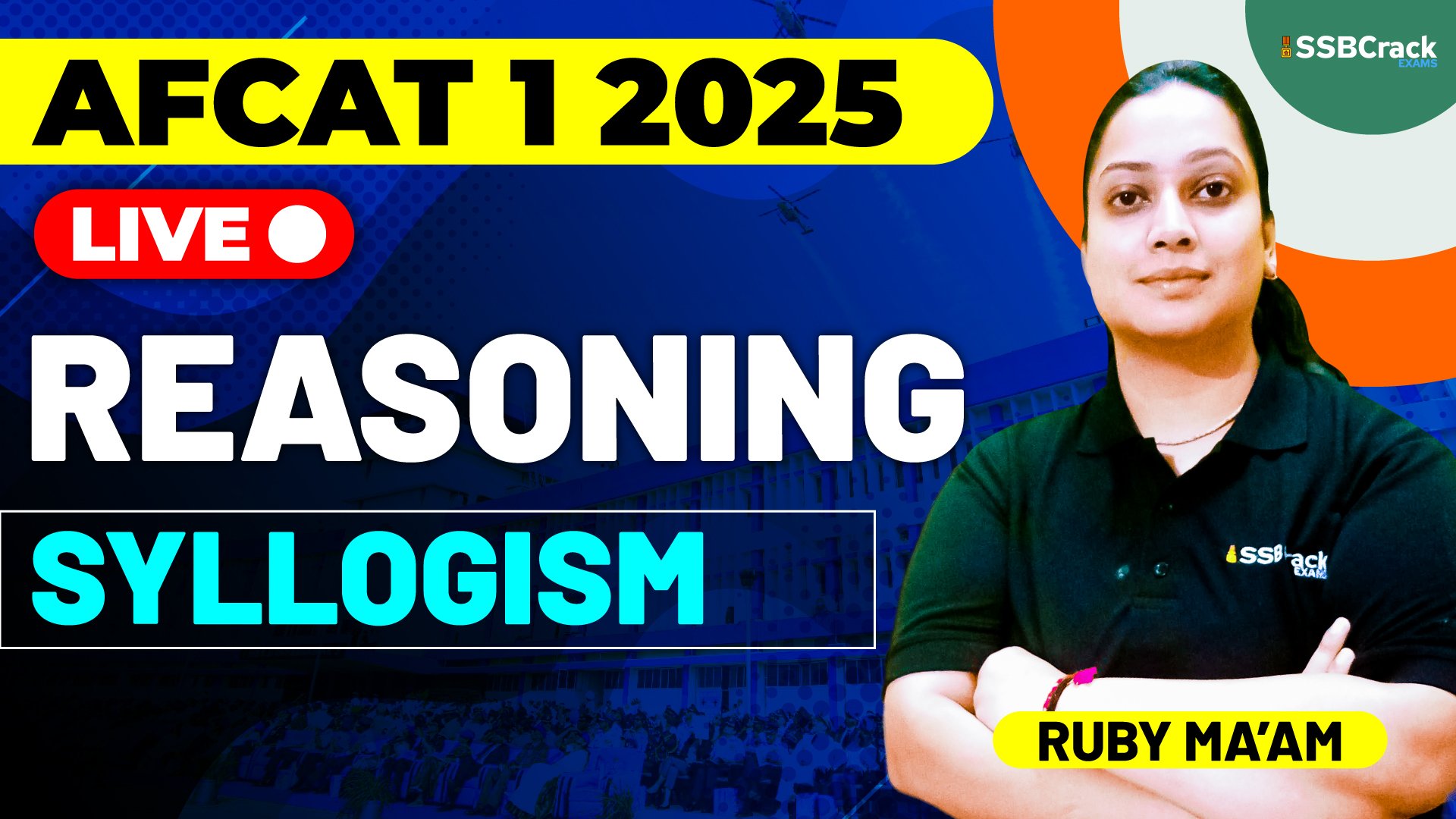AFCAT (Air Force Common Admission Test) is one of the key examinations for aspirants seeking to join the Indian Air Force in various branches such as Flying, Ground Duty (Technical), and Ground Duty (Non-Technical). Among the many subjects that candidates are tested on, the verbal and non-verbal reasoning sections play a significant role in assessing a candidate’s logical thinking and decision-making abilities. Syllogism, a fundamental concept in reasoning, is an important topic that AFCAT aspirants must master. Understanding the importance of syllogism can help aspirants achieve higher scores and stand out in this competitive exam.
What is Syllogism?
Syllogism is a form of deductive reasoning where a conclusion is drawn from two given or assumed premises (statements). Each statement has a relation between categories or terms, and based on these, conclusions must be derived logically. Typically, syllogism questions test an individual’s ability to evaluate logical arguments without making any assumptions beyond the given statements.
For example:
- Premise 1: All birds are animals.
- Premise 2: Some animals are mammals.
- Conclusion: Some birds are mammals.
In syllogism, the challenge is to accurately deduce which conclusions logically follow from the premises, regardless of any real-world knowledge. AFCAT tests this skill to ensure candidates possess sharp reasoning abilities.
Why is Syllogism Important in AFCAT?
- Enhances Logical Thinking
Syllogism questions require candidates to carefully analyze and process the information in a structured manner. This practice strengthens logical thinking, a critical skill in decision-making, which is highly valued in defense services. - Scoring and Time-Efficient
Syllogism is one of the easiest topics in the reasoning section, once understood. With the right strategies, candidates can solve syllogism questions quickly and accurately. Given the time constraints in AFCAT, mastering syllogism can help candidates score more in less time, improving overall performance. - Helps with Analytical Reasoning
AFCAT reasoning questions often focus on assessing an aspirant’s ability to think analytically. Syllogism builds the foundation for solving more complex analytical problems. Regular practice of syllogism will improve your ability to evaluate and interpret data systematically. - Common in Other Defense Exams
The importance of syllogism is not limited to AFCAT. It is a common topic across several other defense-related competitive exams such as NDA, CDS, and even in some civil service exams. Hence, mastering syllogism for AFCAT will also help you in future endeavors. - Tests Your Attention to Detail
Syllogism tests your attention to detail because the differences between premises can sometimes be subtle. Candidates who are able to carefully read and interpret every part of the given premises will excel in this section. This focus on detail is critical in the Indian Air Force, where precision in decision-making can make a significant difference.
Tips to Master Syllogism for AFCAT
- Understand the Basics
Before solving syllogism questions, it is essential to grasp the basic concepts like categorical propositions (All, Some, None), Venn diagrams, and the types of conclusions that can logically follow from given premises. - Practice Venn Diagrams
Venn diagrams are one of the most effective ways to solve syllogism problems. They help visualize the relationship between different categories, making it easier to derive conclusions. - Learn the Key Rules
There are certain rules to syllogism that are universally applicable, such as:- “All” implies “Some.”
- If no direct relationship can be derived between two terms, the conclusion is “No conclusion.”
- Solve Previous Year Papers
Go through previous AFCAT papers and practice the syllogism questions. This will give you an idea of the type of questions asked and the level of difficulty, allowing you to fine-tune your approach. - Time Yourself
Since AFCAT is a timed exam, practicing syllogism under timed conditions is crucial. The more you practice, the quicker you will be at identifying logical conclusions.
Conclusion
Syllogism is a crucial part of the reasoning section in AFCAT and mastering it can give you a competitive edge. It not only helps you score high but also builds the foundation for solving other reasoning problems efficiently. By practicing regularly and understanding the core concepts, you can improve your performance significantly and increase your chances of acing the AFCAT exam.







